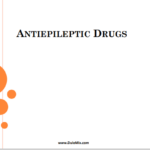INFORMED CONSENT FORM
Submitted to: Dr. Sanjula Presented by :Yasmeen
Baboota M.Pharm( Pharmaceutics)
School of Pharmaceutical School of Pharmaceutical
Education and Research Education and Research
Jamia Hamdard Jamia Hamdard
www.cusportsmed.org
CONTENTS
ICF(Informed Consent Form)
Introduction
Informed consent cases /studies
Ethical Principles
Informed Consent process
IRB( Institutional Review Board)
Responsibilities of IRB
IRB composition
www.cusportsmed.org
INTRODUCTION
Informed Consent is a process by which a subject voluntarily
confirms his or her willingness to participate in a particular trial,
after having been informed of all aspects of the trial that are
relevant to the subject’s decision to participate
Informed consent is documented by means of a written ,signed
and dated Informed Consent Form(ICF)
Informed consent is a vital part of the research process, and as
such entails more than obtaining a signature on a form
www.cusportsmed.org
www.cusportsmed.org
Informed Consent Cases/ Studies
Tuskegee Syphilis Study(1932-1972)
Patients left with untreated syphilis for decades
Nazi Medical War Crimes( 1935-1945)
Physician –conducted experiments especially harmful to
subjects
Cold War Human Radiation Experiments(1944-1974)
Radiation Experiments on U.S citizens
The Wichita Jury Study (1955)
Audiotaped Jury Deliberation
Milgram Studies of Obedience to Authority (1960s)
People do cruel and umethical things when authority tells
them to
www.cusportsmed.org
Contd…….
Thalidomide Experience (1962)
Birth defects in pregnant women
Jewish Chronic Disease Hospital Study (1963)
Live cancer cells injected into chronically ill patients
Willbrook Hepatitis Study (1963-1966)
Infected mentally ill children with hepatitis without
telling parents or children
www.cusportsmed.org
WHY IT IS IMPORTANT
These studies are intended to test the safety and
effectiveness of new treatments and therapies on
people because of this, participants must understand
that they are acting as subjects in a research study
and not as patient .
www.cusportsmed.org
Ethical Principles – Why
• Nuremburg Code: “The voluntary consent of the human
subject is absolutely essential”. This means that the person
involved should have legal capacity to give consent, without
any intervention of deceit or coercion; and should have
sufficient knowledge and comprehension of the subject matter.
(Nuremburg Code, 1949)
• Declaration of Helsinki: “…the well-being of the individual
research subject must take precedence over all other
interests.” (Declaration of Helsinki, 1964)
• Belmont Report: “…respect for persons demands that subjects
enter into the research voluntarily and with adequate
information.” (The Belmont Report, February 1976)
www.cusportsmed.org
The Informed Consent Process – Who
Who Must be Consented?
• Potential subjects who are thought to fulfill the
inclusion/exclusion criteria for the study.
Who May Obtain Consent?
• Qualified research team members trained in Human
Subject Protection & with sufficient knowledge about the
specific study. This may include the Principal Investigator
(PI), sub-investigators, research coordinators or other
research team member approved by the IRB.
• Though the PI may delegate obtaining consent to other
team members, proper oversight and execution is always
the PI’s responsibility.
www.cusportsmed.org
The Informed Consent Process – What
8 Required Elements of Informed Consent:
1. Research – statement that study involves research, its purpose,
duration, procedures, & identification of experimental procedures.
2. Risks – or discomforts, that are reasonably foreseeable.
3. Benefits – to subject or others, that are reasonably expected.
4. Alternative – procedures or treatments available, if any.
5. Confidentiality – of records identifying subject, though may be
inspected by authorized entities (i.e., FDA, IRB, UCD/UCH, Sponsor).
6. Research-Related Injury – available treatment & compensation (if
study is greater than minimal risk).
7. Contact – person for questions regarding the study, subject’s rights, or
research-related injury.
8. Voluntary – no penalty or loss of benefits for choosing not to
participate & may discontinue at any time.(FDA 21 CFR 50.25 & 45 CFR 46.116)
www.cusportsmed.org
The Informed Consent Process – What
Additional Elements of Informed Consent:
1. Unforeseeable Risks – may be involved.
2. Participation Termination – circumstances under which PI
may terminate subjects participation without their consent.
3. Additional Costs – to subject due to participation.
4. Withdrawal – consequences of subject’s decision to
withdraw & withdrawal procedures.
5. Significant New Findings – subjects will be notified of new
findings which develop during the course of research that
may relate to their willingness to continue participation.
6. Subject Numbers – approximate number involved in study.
The 8 basic elements are required in all consents. Additional
elements are used when appropriate and as required by IRBs. They
are typically incorporated in the IRB templates with instruction for
www.cusportsmed.org
use.
The Informed Consent Process – When
Informed consent must be obtained:
• Prior to conducting any study related tests, procedures,
treatments, or questionnaires.
• Using the current IRB approved consent form (HRRC approval
is also required prior to consenting any subjects if using UCH
facilities).
• Re-consent is required if there is new information that would
effect the subjects willingness to continue participation or as
directed by the IRB.
www.cusportsmed.org
The Informed Consent Process – How
• Identify potential study participants based on study criteria.
• Describe the study verbally, as outlined in the approved consent,
using non-technical language. An interpreter should be involved if
necessary.
• Invite questions and ensure all are answered satisfactorily.
• Allow time to review the consent alone or with physician, family or
friends if desired.
• Assess understanding of the major elements of the consent.
• If there is voluntarily agreement to participate, obtain signature,
initials where indicated, and date from the subject.
• Consenter must also sign and date, as must the PI if there is a PI
signature line on the consent form.
• Provide a copy to the subject and maintain the original in the
subject’s study file.
• Complete the Consent Process Documentation form & file.
www.cusportsmed.org
Institutional Review Board (IRB)
The purpose of an IRB is to review research and to ensure the rights and
welfare of human subjects involved in research are adequately protected.
Responsibilities of IRB
safeguard the rights, safety, and well-being of all trial subjects. Special
attention should be paid to trials that may include vulnerable subjects
Should obtain the documents
trial protocol(s)/amendment(s)
written informed consent form(s) and consent form updates that the
investigator proposes for use in the trial
subject recruitment procedures (e.g. advertisements)
written information to be provided to subjects
Investigator’s Brochure (IB)
available safety information
information about payments and compensation available to subjects
www.cusportsmed.org
IRB cont….
should consider the qualifications of the investigator for the
proposed trial, as documented by a current curriculum vitae and/or
by any other relevant documentation the IRB/IEC requests
should conduct continuing review of each ongoing trial at intervals
appropriate to the degree of risk to human subjects, but at least once
per year
may request additional information would add meaningfully to the
protection of the rights, safety and/or well-being of the subjects
should review both the amount and method of payment to subjects
to assure that neither presents problems of coercion or undue
influence on the trial subjects
should determine that the proposed protocol and/or other
document(s) adequately addresses relevant ethical concerns and
meets applicable regulatory requirements for such trials
www.cusportsmed.org
IRB composition
The IRB/IEC should consist of a reasonable number of
members, who collectively have the qualifications and
experience to review and evaluate the science, medical aspects,
and ethics of the proposed trial.
It is recommended that the IRB should include:
Chair Person
1-2 basic medical scientist
1-2 clinician from various institutes
1 legal expert
1 social scientist/ representative of NGO
One lay person
Member secretary
www.cusportsmed.org
Summary
• Consent is an ethical obligation governed by federal regulation,
which requires the use of current IRB approved consent forms.
• Consent must be informed and voluntary.
• Consent must be completed prior to any study-related activity.
• Documentation of the consent process (by signing the consent
form) is required for most studies.
• Obtaining consent may be delegated to trained research team
members, but is always the PI’s responsibility.
Consent is a Process – Not just a Form!
• 3/28/2013
www.cusportsmed.org
THANK YOU










